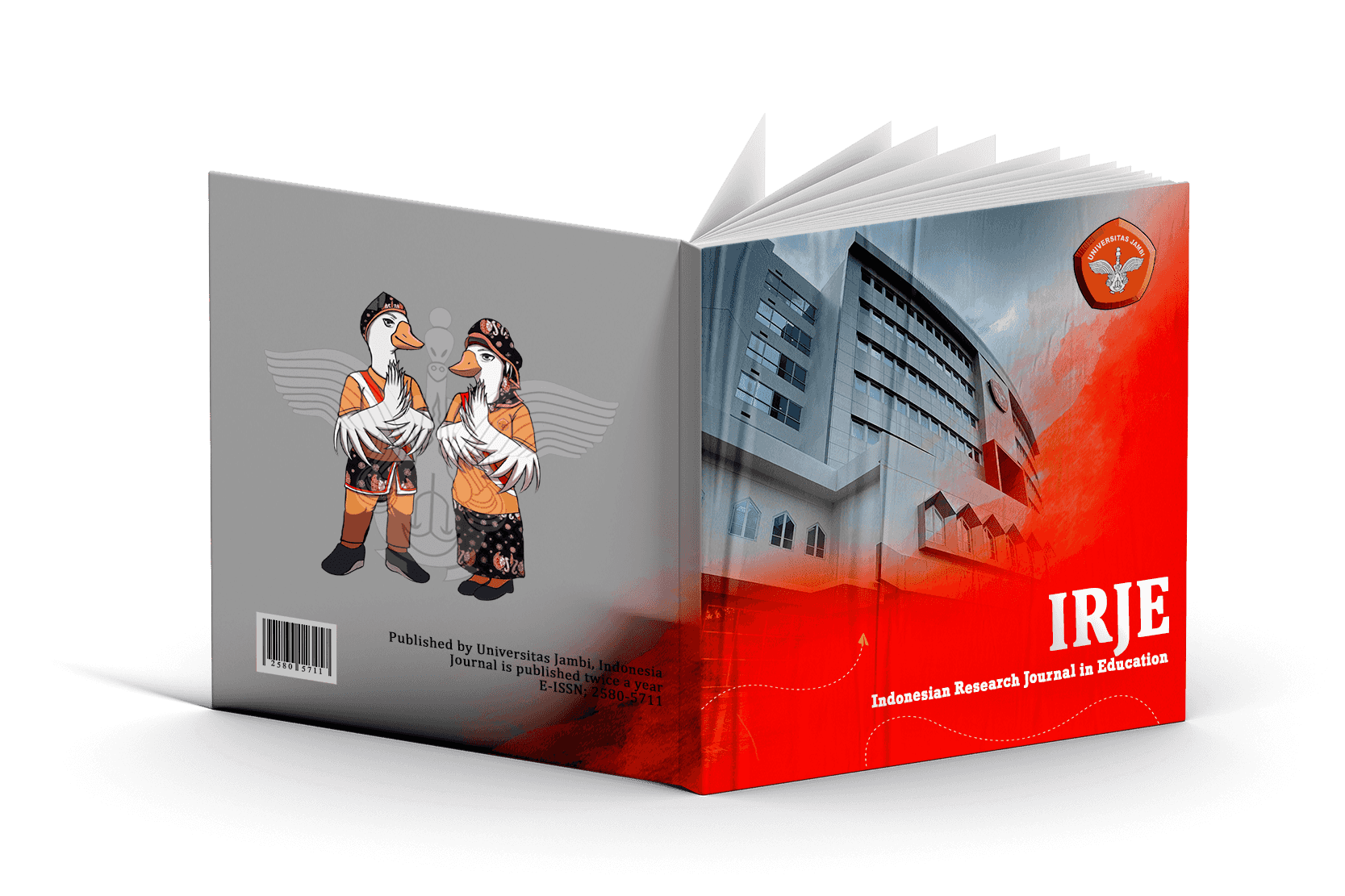

Current Issue
We are proud to announce that IRJE (Indonesian Research Journal in Education) is currently indexed by:
(a) the Indonesian Minister of Research, Technology and Higher Education, Number B/3351/E5/E5.2.1/2019 on October 11, 2019. SINTA 2 (Science and Technology Index), delivers access to citations and expertise in Indonesia, web-based research information system offering fast access, easy and comprehensive to measure the performance of researchers, institutions and journals in Indonesia. Sinta provides benchmarks and analysis, identification of research strength of each institution to develop collaborative partnerships, to analyze the trend of research and expert directories.
(b). DOAJ on 2 May 2018. DOAJ's mission is to increase the visibility, accessibility, reputation, usage and impact of quality, peer-reviewed, open access scholarly research journals globally, regardless of discipline, geography or language. DOAJ will work with editors, publishers and journal owners to help them understand the value of best practice publishing and standards and to apply those to their own operations. DOAJ is committed to being 100% independent and maintaining its primary services and metadata as free to use or reuse for everyone.
(c) ERIH PLUS on 2020-01-27. ERIH PLUS (originally called the European Reference Index for the Humanities or ERIH) is an index holding bibliographic information on academic journals in the Social Sciences and Humanities (HSS). The aim of the index is to increase visibility, searchability and availability of the HSS. ERIH PLUS is an online service, and it grants updated data on European journals. The main target group of the index are researchers and research within a European framework. To the extend which the index holds journals from other parts of the world, it is because they are assumed to add value to the ERIH PLUS main target group and scope.



